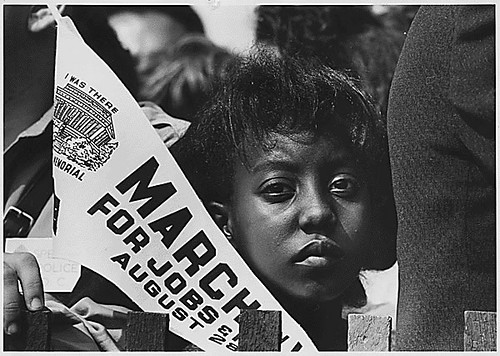CIVIL RIGHTS, CIVIL LIBERTIES, AND SOCIAL JUSTICE

Image By pingnews
For decades the fight for civil liberties, civil rights, and social justice have been a mission for many individuals and groups around the world. This fight has resulted in many deaths as well as many victories. In the United States, some of the most important civil liberties and civil rights are guaranteed by the “United States Bill of Rights” and also the 13th, 14th, 15th, 19th and 26th amendments to the constitution.
One of the most significant struggles for social justice was the civil rights movement which took place mainly during the 1950s to 1960s. During this era, people rallied for political, legal, and social change related to segregation and discrimination. Arguably one of the most famous events during the civil rights movement was the “March on Washington” which took place on August 28, 1963. The march was attended by various civil rights leaders to include Dr. Martin Luther King Jr. who is one of the most influential African American civil rights leaders of all times. It was at this event that Dr. King delivered his famous, “I Have A Dream” speech.

Image By The Hague
Dr. King was instrumental in the passage of the Civil Rights Act of 1964 and the Voting Rights Act of 1965. Dr. King was also awarded the Nobel Prize for Peace in 1964. He was assassinated on April 4, 1968. His achievements are celebrated annually nationwide on Martin Luther King, Jr. Day which is held the third Monday of January.
During the 1960s, The Civil Rights Movement provided a road-map for other social justice movements such as the Gay Rights Movement (https://www.history.com/topics/gay-rights/history-of-gay-rights) and the American Indian Movement (AIM) (https://www.history.com/this-day-in-history/aim-occupation-of-wounded-knee-ends). The 1960’s decade was also a progressive time for the Women’s Rights Movement (a movement which began in the 19th century).
The human brutality during the Civil Rights Movement attracted international condemnation and affected the United States influences around the world. It also left some to question if the U.S. had a commitment to freedom and human rights.

Image By The Hauge
Our civil liberties and freedoms are a precious gift that have been bequested to us through the personal
sacrifices of others. Some of the ways we can express our gratitude for these sacrifices are: remaining in a state of continuous gratitude, understanding our history, having meaningful conversations about race and social justice, and continuously taking actions against racial and social injustices.

Image By Sean MacEntee
(1) KNOW YOUR HISTORY
George Santayana once said, “Those who do not remember the past are condemned to repeat it.”
On the evening of April 14, 1865, a well known stage actor and Confederate sympathizer (John Wilkes Booth) assassinated President Abraham Lincoln. President Lincoln was one of the most influential presidents in the United States History and was known for his leadership during the American Civil War and also his support of civil liberties, by signing the Emancipation Proclamation, an executive order freeing slaves. Decades later another influential president, John F.Kennedy, who also supported civil liberties was also assassinated on November 22, 1963. Both presidents were shot on a Friday with a fatal bullet to the head. Oddly, both of their successors had the last name of “Johnson” (Andrew Johnson and Lyndon B. Johnson).
It is not uncommon for those who support social justice and qualities to pay the price of their beliefs with their life. It is therefore, not only important to remember the sacrifices of others, but discover ways that we can co-exists despite our differences.

Image By R. Rasmussen
(2) HAVE MORE MEANINGFUL CONVERSATIONS ABOUT RACE
“Be brave enough to start a conversation that matters”
Margaret Wheatley
Brave conversations starts in our home. Parent(s) are very influential and in a healthy home environment, they can be our best teachers. If you grow up in an environment, for example where being a certain color makes you more superior or that one race is “purer” than another, then you will begin to believe this. However, as we teach our children or as we having meaningful conversation about race, it is important facts, such as “pure” races do not exist today in the sense of genetically homogeneous population. https://physanth.org/about/position-statements/aapa-statement-race-and-racism-2019/.

Image By Mobilus In Mobili
(3) TAKE ACTION AGAINST RACIAL AND SOCIAL INJUSTICE.
Congressman John Lewis was affectionately known as the “Conscious of Congress”. For more than five decades, Lewis was a champion for peace, justice and equality. Some of his work included: being one of the nonviolent Freedom Riders who were beaten and arrested in the South, leading over 600 demonstrators in march across the Edmund Pettus Bridge in Selma Alabama and being brutally attached by state troopers, and delivering a speech during the 1963 March on Washington event. Additionally, although Lewis was arrested more than 40 times for civil rights activities, he took it in stride. He also is famously known as saying this about getting in trouble, “Ordinary people with extraordinary vision can redeem the soul of America by getting in what I call good trouble, necessary trouble”.
